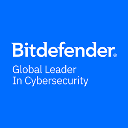Which antivirus should you choose for your business in 2025? 9 software comparisons and tips for choosing
Protecting your business from digital threats is like choosing your Spotify playlist: it depends on your tastes, but above all on your needs! In 2025, faced with ever more sophisticated cyberattacks, the question is no longer whether you need antivirus software, but which antivirus software to choose to offer you the best protection for your data and your system. Whether you're looking for freeware, payware, VPN or premium features, it's hard to know which one to choose!
Rest assured, we've done the hard work for you. In this comparative guide, you'll find the 9 best antivirus products on the market today (yes, even for you Mac fans and Windows enthusiasts), as well as our practical advice on choosing THE antivirus solution for your business.
Ready to say goodbye to viruses and malicious files? Follow the guide!
Top 9 free and paid antivirus solutions for professionals in 2025
1 of 8
 Kaspersky Small Office Security ufvhb ju |  Avast Premium Business Security |  ESET Endpoint |  GravityZone by Bitdefender |  Malwarebytes |  McAfee Antivirus |  Microsoft Defender |  Sophos Endpoint Protection |
|---|---|---|---|---|---|---|---|
| For companies with 1 to 250 employees | For all companies | For all companies | For all companies | For all companies | For all companies | For all companies | For all companies |
| See software | See software | See software | See software | See software | See software | See software | See software |
| Learn more about Kaspersky Small Office Security ufvhb ju | Learn more about Avast Premium Business Security | Learn more about ESET Endpoint | Learn more about GravityZone by Bitdefender | Learn more about Malwarebytes | Learn more about McAfee Antivirus | Learn more about Microsoft Defender | Learn more about Sophos Endpoint Protection |
Avast Premium Security
Avast Premium Security is a comprehensive antivirus solution designed to provide robust protection for businesses, especially SMEs. It ensures the security of your devices and data against a wide variety of threats.
Key features
- Real-time protection against viruses, ransomware and malware.
- Secure online transactions thanks to an advanced detection system.
- Integrated VPN to guarantee the confidentiality and security of your Internet browsing.
- Protection of sensitive files to prevent data leakage or corruption.
- Multi-system compatibility: Windows, Mac, Android.
Why choose Avast Premium Security?
This solution is ideal for businesses looking for a reliable, easy-to-deploy and comprehensive antivirus solution. It combines efficiency and simplicity, without complicating IT security management.
Our verdict?
Avast is like that colleague who anticipates problems before they happen. You can rest easy, while he keeps an eye on things.

Avast Premium Business Security
ESET
ESET is an antivirus recognized for its lightness and efficiency, particularly appreciated by businesses that don't want to slow down their systems.
Key features
- Proactive protection against viruses, malware, ransomware and zero-day attacks.
- Advanced heuristic analysis to detect unknown threats.
- Centralized management tool for easy security control of multiple devices.
- Email protection and anti-phishing filtering to secure business email.
- Compatible with Windows, Mac, Android and Linux, with frequent automatic updates.
Why choose ESET?
ESET stands out for its low impact on device performance, making it an ideal choice for businesses that don't want to sacrifice system speed at the cost of security. Its centralized administration console is a significant plus for IT teams.
Our verdict?
With ESET, it's a bit like having a security ninja on your network: discreet, fast, and terribly effective.

ESET Endpoint
GravityZone Small Business Security (Bitdefender)
GravityZone is the antivirus solution for small businesses that want a high-performance shield without the hassle.
Key features
- Multi-layered protection against viruses, ransomware and other malware.
- Advanced behavioral detection to identify emerging threats in real time.
- Integrated firewall and device control to limit entry points.
- Centralized cloud console to manage security on all devices from a single dashboard.
- Compatible with Windows, Mac and Android, with fast, automatic updates.
Why choose GravityZone?
Bitdefender has proven the reliability of its antivirus engines, with detection rates among the best on the market. The intuitive management console makes life easier for IT administrators, especially in organizations without a dedicated department. Value for money is also a major plus.
Our verdict?
If you're looking for serious, uncomplicated protection, GravityZone fits the bill perfectly. It's a robust solution that's easy to integrate, even without being a security expert.

GravityZone by Bitdefender
Kaspersky Small Office Security
Kaspersky Small Office Security is designed for small businesses that want comprehensive protection without sacrificing simplicity.
Key features
- Real-time protection against viruses, malware, ransomware and phishing.
- Secure online banking transactions and protect sensitive data.
- Centralized management via a simple web console for monitoring multiple devices.
- Email protection and secure web browsing.
- Compatible with Windows, Mac and Android, with automatic updates.
Why choose Kaspersky Small Office Security?
Kaspersky enjoys a solid reputation thanks to its efficient antivirus engine and numerous business-oriented features. The console's ease of use means rapid deployment and simplified management, even for non-specialists.
Our verdict?
Kaspersky offers solid protection without complexity. It's a practical solution that adapts well to small businesses, and makes day-to-day security management really easy.

Kaspersky Small Office Security ufvhb ju
Malwarebytes Premium
Malwarebytes Premium is renowned for its targeted effectiveness against malware and sophisticated threats that traditional antivirus software sometimes misses.
Key features
- Proactive protection against viruses, ransomware, malware and spyware.
- Fast, targeted scanning to detect hidden threats.
- Efficient cleaning of infected or suspicious files.
- Protection against phishing and malicious websites.
- Compatible with Windows, Mac and Android, with automatic updates.
Why choose Malwarebytes Premium?
Malwarebytes stands out for its expertise in detecting and eliminating advanced threats, which is particularly useful for reinforcing existing protection. Its streamlined interface makes it easy to use, even for non-experts.
Our verdict?
Malwarebytes is an excellent complement for those who want an extra layer of security without weighing down their system. Simple, effective and precise. In short, it's perfect for tracking down what other antivirus programs may be missing.

Malwarebytes
McAfee
McAfee remains the benchmark for businesses looking for a complete antivirus solution with advanced features. For businesses, McAfee Business Protection is the right choice.
Key features
- Real-time protection against viruses, ransomware and malware.
- Integrated firewall and application control.
- Sensitive data protection and password management.
- Vulnerability scanning to detect system vulnerabilities.
- Compatible with Windows, Mac and Android, with automatic updates and responsive customer support.
Why choose McAfee?
McAfee offers a comprehensive security suite, suitable for SMEs and large corporations alike. Its ability to combine several security tools makes it a versatile and powerful solution, even if it can sometimes be a little resource-hungry.
In our opinion
McAfee is like the Swiss Army knife of security: it does a lot of things well, but you need a good computer under the hood to get the most out of it...

McAfee Antivirus
Microsoft Defender
Microsoft Defender has come a long way in recent years, and has now established itself as a serious option for protecting corporate Windows systems.
Microsoft Defender
Microsoft Defender has come a long way in recent years, and is now a serious option for protecting Windows systems in the enterprise.
Key features
- Native, integrated protection for Windows 10 and 11, at no extra cost.
- Real-time scanning against viruses, malware, ransomware and advanced threats.
- Cloud protection for faster threat detection.
- Application control and device management.
- Integration with Microsoft 365 Defender for unified security across multiple services.
Why choose Microsoft Defender?
For businesses that want an effective antivirus solution at no extra cost, Microsoft Defender is a natural choice. Its ease of integration and low impact on performance make it a practical solution, especially for SMEs already in the Microsoft ecosystem.
In our opinion
Microsoft Defender has become a serious player in the game, especially if you're already using Windows in your business. It's a solid solution, often underestimated, that richly deserves its place in the race.

Microsoft Defender
Norton Small Business
Norton Small Business is aimed at small businesses that want simple yet powerful protection, with easy management of multiple devices.
Key features
- Real-time protection against viruses, ransomware, spyware and online threats.
- Intelligent firewall and Wi-Fi network monitoring.
- Personal data protection and cloud backup tools.
- Centralized management console to secure up to 50 devices.
- Compatible with Windows, Mac, Android and iOS, with automatic updates.
Why choose Norton Small Business?
Norton combines robustness and simplicity, offering effective protection with little configuration required. Its intuitive console makes it easy to manage security even without in-depth technical expertise, which is ideal for small businesses.
Our verdict
Norton Small Business offers robust, reliable protection, while simplifying security management for small businesses. It's a solution that combines efficiency and ease of use, perfectly suited to teams that don't necessarily have dedicated IT resources.
Sophos Endpoint Protection
Sophos Endpoint Protection is a comprehensive solution designed for companies that want advanced security without unnecessary complexity.
Key features
- Real-time protection against viruses, ransomware and advanced threats.
- Behavioral analysis to detect unknown threats.
- Centralized management via a secure cloud console.
- Sensitive data protection and leakage prevention.
- Compatible with Windows, Mac and Android with regular automatic updates.
Why choose Sophos Endpoint Protection?
Sophos stands out for its advanced detection and incident response capabilities, making it the ideal solution for businesses looking to strengthen their security posture while keeping management simple.
In our opinion
Sophos Endpoint Protection combines advanced technologies with simplicity of management, offering an effective solution that meets the requirements of modern businesses without adding to their operational burden.

Sophos Endpoint Protection
How to choose your antivirus?
To choose the right antivirus for your business, you need one that is effective, easy to use and adapted to your environment. In 2025, with the proliferation and sophistication of threats, this choice is more strategic than ever. Here are the essential criteria to guide you.
1. Quality of detection and speed of reaction
Not all antivirus products are equal when it comes to identifying threats. Choose a solution that combines several detection methods:
- classic signature,
- heuristic analysis
- and behavioral detection.
This enables you to anticipate not only known viruses, but also new or mutant attacks, such as ransomware. A good antivirus must also offer effective real-time detection, to block threats as soon as they appear, before they compromise your data or systems.
2. Compatibility with your computer environment
Your antivirus must be perfectly compatible with the operating system(s) of your devices: Windows, Mac, Android, even Linux. This is a crucial point, as poor compatibility can generate conflicts, security flaws or slowdowns.
✅ Also think about compatibility with your other business software and security tools, to avoid duplication or incompatibilities that would complicate IT management.
3. Ease of administration and centralized management
In an SME or a structure without a dedicated IT team, simplicity is king. Choose an antivirus that offers a centralized, cloud-accessible administration console, so you can control the protection of all your devices from a single interface. This avoids the need for machine-by-machine intervention, and makes it easier to manage updates, alerts and security reports.
4. Additional value-added features
In addition to simple virus detection, modern antivirus software often includes additional features:
- Integrated VPN to secure Internet connections, especially if you make extensive use of telecommuting or the cloud.
- Advanced firewall to filter incoming and outgoing communications.
- Email protection to block phishing and malicious attachments.
- Device control (USB, external disks) to prevent infections via physical media.
- Vulnerability scanning to detect software and system vulnerabilities.
These options can be decisive, depending on the size of your company and your sector of activity (e.g. financial services, healthcare, handling sensitive data).
5. Impact on device performance
A heavyweight antivirus can slow down your computers and hinder productivity. Test the solution's impact on the speed of your devices, especially if you're working on older machines. Ideally, antivirus software should run in the background with minimum resource consumption, without compromising security.
6. Technical support and updates
Cybersecurity is a constant battle. Make sure your supplier offers responsive, competent technical support, available at times that suit your business. Updates should be frequent, automatic and rapid, to incorporate the latest virus definitions and ward off new threats.
7. Budget and business model
Finally, the choice between free and paid antivirus depends not only on your budget, but also on your requirements.
- Free versions may be suitable for basic protection,
- but advanced options, centralized management and support are generally reserved for paid versions.
👉 Remember to evaluate value for money according to the features you really need.
9 antivirus comparison tables to help you choose
Here's a summary comparison table of the 9 antivirus products presented, including key criteria to help you choose the best solution for your business in 2025:
Compare protection and features
| Antivirus | Protection (Detection & Reaction) | Additional key features |
| Avast Premium Security | Excellent real-time detection | Integrated VPN, protection of sensitive files |
| ESET | Very good, heuristic analysis | Email management, anti-phishing |
| GravityZone Small Business | Among the best detection rates | Firewall, device control |
| Kaspersky Small Office Security | Efficient engine, real-time detection | Banking security, email protection |
| Malwarebytes Premium | Targeted at advanced threats, highly effective | Targeted cleaning, anti-phishing |
| McAfee | Complete solution, vulnerability scanner | Password management, firewall |
| Microsoft Defender | Integrated with Windows, native protection | Cloud protection, application control |
| Norton Small Business | Simple, comprehensive protection | Wi-Fi monitoring, cloud backup |
| Sophos Endpoint Protection | Advanced detection, behavioral analysis | Data leakage prevention, incident response |
Compare compatibility and centralized management
| Antivirus | Compatibility | Centralized management |
| Avast Premium Security | Windows, Mac, Android | Yes |
| ESET | Windows, Mac, Android, Linux | Yes |
| GravityZone Small Business | Windows, Mac, Android | Intuitive cloud console |
| Kaspersky Small Office Security | Windows, Mac, Android | Yes |
| Malwarebytes Premium | Windows, Mac, Android | Yes |
| McAfee | Windows, Mac, Android | Yes |
| Microsoft Defender | Windows only (partial Mac) | Integrated Windows Defender |
| Norton Small Business | Windows, Mac, Android, iOS | Centralized console |
| Sophos Endpoint Protection | Windows, Mac, Android | Secure cloud console |
Compare performance, support, versions and prices
| Antivirus | Impact on performance | Support | Free version | Approximate price of admission* |
| Avast Premium Security | Low to moderate | Frequent updates | Yes | Approx. €40/year |
| ESET | Very low | Reactive support | No | Approx. €50/year |
| GravityZone Small Business | Low | Fast updates | No | Approx. €45/year |
| Kaspersky Small Office Security | Low | Reliable support | No | Approx. €60/year |
| Malwarebytes Premium | Low | Automatic updates | No | Approx. €40/year |
| McAfee | Moderate | 24/7 support | No | Approx. €50/year |
| Microsoft Defender | Very low | Automatic updates | Yes | Free |
| Norton Small Business | Low | Responsive support | No | Approx. €70/year |
| Sophos Endpoint Protection | Low | Support and updates | No | On quotation |
So, have you chosen the right antivirus to protect your business?
Choosing the right antivirus for your business in 2025 is much more than a matter of price or reputation. It's a strategic decision that must take into account the nature of the threats, the configuration of your systems, and your specific needs in terms of functionality and management.
Whether you're looking for a free solution like Microsoft Defender, or more comprehensive paid-for antivirus products like Bitdefender, Kaspersky or Sophos, the key is to find the right combination of performance, ease of use and enhanced protection.
Remember: in the battle against viruses and malware, the best defense remains active, well-managed and regularly updated security. So arm yourself intelligently to stay one step ahead of threats and ensure the continuity and security of your business!
Which antivirus to choose? The FAQ!
Which antivirus is the most effective?
There's no single answer, as effectiveness depends on your environment and the threats you're targeting. However, solutions such as Bitdefender GravityZone, ESET or Kaspersky Small Office Security are regularly praised for their high detection rates and rapid response to new threats. The choice also depends on the ease of integration and the additional features you need.
Are they all Windows or Mac compatible?
Most professional antivirus products are compatible with Windows and Mac, and sometimes also with Android and Linux. For example, Microsoft Defender is primarily optimized for Windows (surprising, you may say), while solutions such as Avast, ESET or Sophos offer cross-platform compatibility. Conclusion: always check the exact compatibility with your systems before choosing.
Which is the most reliable free antivirus?
Microsoft Defender has established itself as the benchmark in free antivirus software, particularly for Windows users. It offers solid native protection and automatic updates. Avast also offers an interesting free version, but advanced features are reserved for the paid versions.
Is Windows Defender sufficient as an antivirus?
Windows Defender (now Microsoft Defender) is more than sufficient for basic protection, especially for SMEs with standard usage. Its native integration and low impact on performance make it a pragmatic choice. On the other hand, for advanced needs (enhanced protection, centralized management, VPN, mail filtering...), you'll need to turn to more comprehensive, pay-as-you-go solutions.
Article translated from French
